|
|
Seeds of Fire: A People’s Chronology
Recalling events that happened on this day in history.
Memories of struggle, resistance and persistence.
Compiled by Ulli Diemer
|
May 10, 1815
|
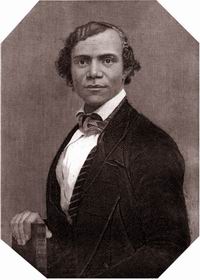
|
|
Birth of Henry Bibb (1815-1854), former slave, abolitionist, author. At the age of 27, he escapes from slavery and throws himself into the anti-slavery cause. In 1850, he publishes his autobiography, Narrative of the Life and Adventures of Henry Bibb, An American Slave, Written by Himself. After the passage of the Fugitive Slave Act in 1850, which exposes him to the danger of being recaptured and returned to slavery, he and his wife move to Canada where he starts the first black newspaper in Canada, Voice of the Fugitive.
|
|
May 10, 1837
|
|
|
Start of the Panic of 1837 in the United States. Speculative lending practices, a collapsing land bubble, and dodgy investments lead to a banking crisis. On May 10, banks in New York announce that they will no longer redeem commercial paper at its face value. The result is a panic: banks and businesses collapse, workers lose their jobs. The U.S. is plunged into a seven-year depression, during which unemployment rises as high as 25%. Protests by workers and the unemployed lead to a significant increase in police forces and the repressive forces of the state during this period.
|
|
May 10, 1857
|
|
|
Start of the Indian Rebellion of 1857, also known as the Sepoy Rebellion and India’s First War of Independence. Indian soldiers serving in the British East India Company’s military forces rebel against the way they are treated. The revolt spreads through much of the country and is put down by the British only with great difficulty after more than a year. The large scale of the rebellion, and the popular support it receives in many areas, make it into a virtual national revolt against colonial rule.
|
|
May 10, 1887
|
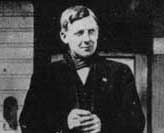
|
|
Birth of Albert Ginger Goodwin (1887-1918), coal miner, labour organizer, socialist. A vice-president of the British Columbia Federation of Labour, Goodwin refuses to be conscripted for service in the First World War, which he describes as workers being conscripted to kill other workers. He hides in the hills near Cumberland, where in July 1918 he is hunted down and murdered by a police officer. The news of his murder sparks a general strike in Vancouver in August 1918.
|
|
May 10, 1933
|
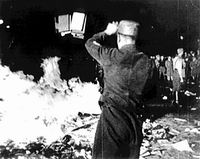
|
|
The first major book burnings takes place in Nazi Germany. 25,000 “Un-German” books are burned in Berlin, with other book burnings taking place on the following nights in some 30 other university towns. Some 40,000 people gather to watch the burning in Berlin.
Among those whose books are burned are Karl Marx, Friedrich Engels, Walter Benjamin, Bertolt Brecht, Albert Einstein, Sigmund Freud, Andre Gide, Heinrich Heine, Ernest Hemingway, Franz Kafka, V.I. Lenin, Jack London, Heinrich, Klaus, and Thomas Mann, Ludwig Marcuse, Jon Dos Passos, Arthur Schnitzler, Leon Trotsky, H.G. Wells, Emila Zola, and Stefan Zweig.
|
|
May 10, 1968
|
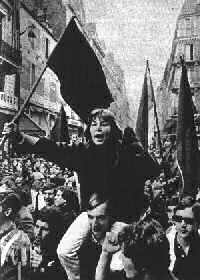
|
|
Protests continue in France despite police repression. A huge crowd congregates on the Rive Gauche in Paris. When security forces belonging to the vicious Compagnies Républicaines de Sécurité (CRS) block them from crossing the river, the crowd again throws up barricades, which the CRS then attack at 2:15 in the morning. In the ensuing battle, which goes on until dawn, hundreds are arrested and injured. Participants believe that among those involved are police agents provocateurs who throw Molotov cocktails and set cars on fire to provide an excuse for further repression.
|
|
May 10, 1994
|
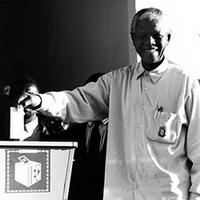
|
|
Nelson Mandela becomes the first democratically elected President of South Africa, and the country’s first black President.
|
|
For more information about people and events in Seeds of Fire, explore these pages:
|
|
|
|
|
|

